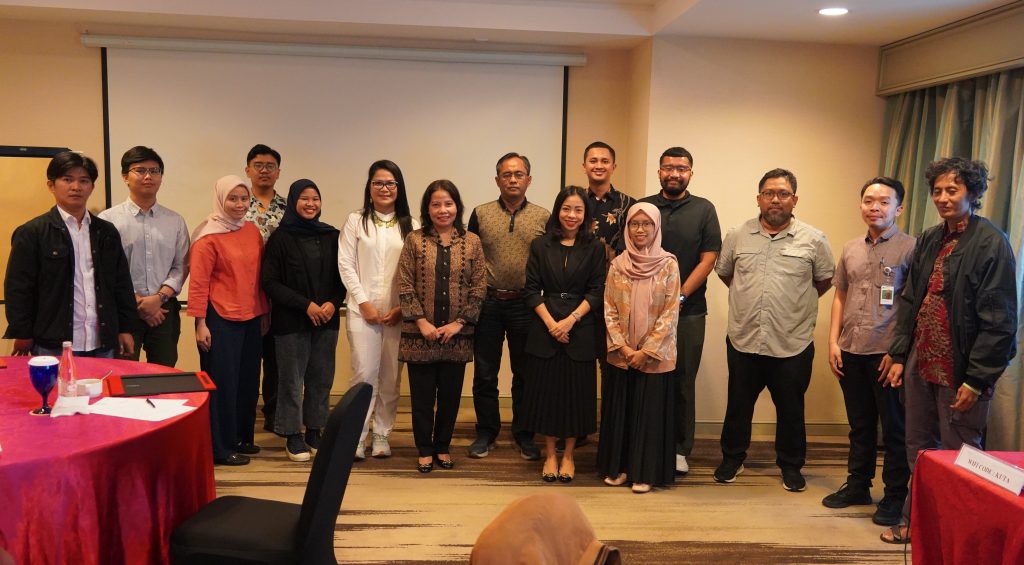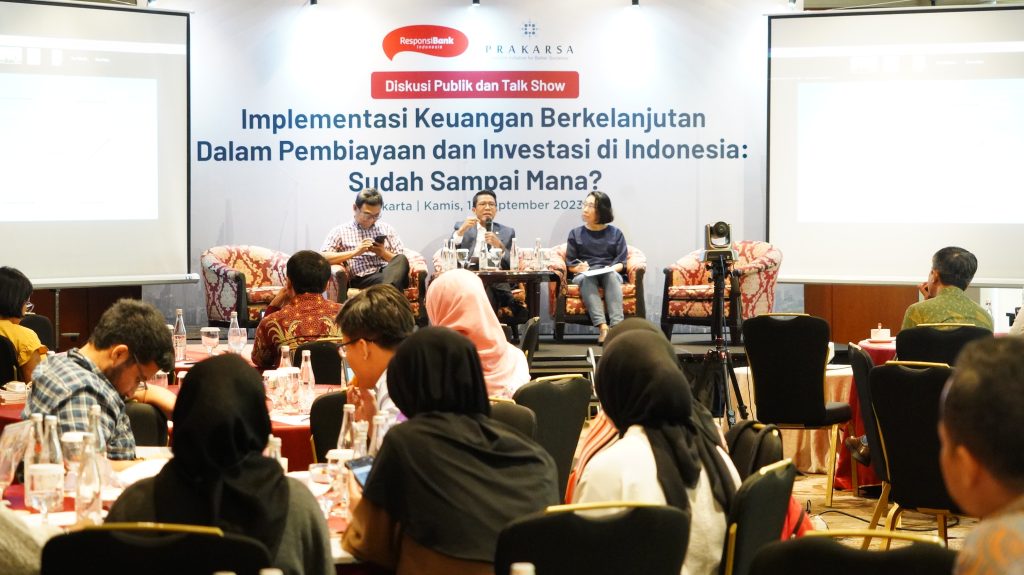
Jakarta, The PRAKARSA - The ResponsiBank Indonesia Coalition as a civil society coalition that works to encourage responsible financing policies and practices is holding a Public Discussion and Talkshow entitled "Implementation of Sustainable Finance in Financing and Investment in Indonesia: Where Have We Come?". Taking place at the Gran Melia Hotel, Jakarta, this activity also launched the fifth bank ranking report "Measuring the Progress of Sustainable Financial Policy for Banking in Indonesia" conducted by The PRAKARSA as Coordinator of the ResponsiBank Indonesia Coalition. On Thursday (14/9).
This report assesses banking performance from various aspects according to international financial guidelines/methodologies developed by the Fair Finance Guide International (FFGI). The assessment was carried out on 11 banks in Indonesia, which represent the largest group of general/commercial banks in Indonesia both in terms of total assets and core capital. The 11 banks are Bank BNI, BRI, Mandiri, BCA, CIMB Niaga, Danamon, Maybank, BJB, Permata Bank, DBS, and HSB.
The assessment was carried out based on 16 themes selected based on issues of concern to the international community and relevant to the Indonesian context, including the themes of climate change, weapons, consumer protection, corruption, forestry, financial inclusion, gender equality, mining, transparency and accountability, human rights. (HAM), oil and gas, workers' rights, electricity generation, nature or biodiversity, taxation, and health.
Of the 16 themes, the top 5 banks that got the highest scores were HSBC, DBS Bank, CIMB Niaga, BCA Bank and BRI Bank. Apart from that, there were 4 banks that experienced a decrease in ranking, namely Maybank, BNI, Bank Permata, and BJB when compared to the assessment in 2020. Of the four banks, BNI experienced the most significant decrease, namely from fifth to ninth in 2022. BNI did not get a score on the 9 themes assessed because in the documents published by BNI there was no disclosure of related information or policies.
Even though there has been an increase in commitment and policies from environmental, social and governance aspects, it is not satisfactory because it is still in the "very poor" and "poor" categories. "Indeed, there has been progress in banking sustainability policies in Indonesia, but the score is still very low and has not moved significantly. "Banks in Indonesia do not yet have the courage to set high targets," said the Executive Director of The PRAKARSA, Ah Maftuchan.
Maftuchan also explained that the financial sector plays an important role in supporting sustainable financing, therefore it is time for financial institutions to have written and explicit policies regarding the financing commitments made. Apart from that, according to Maftuchan, the OJK's role is important, "so the OJK also needs to develop incentive and disincentive schemes to attract banks to allocate financing to the green sector," he explained.
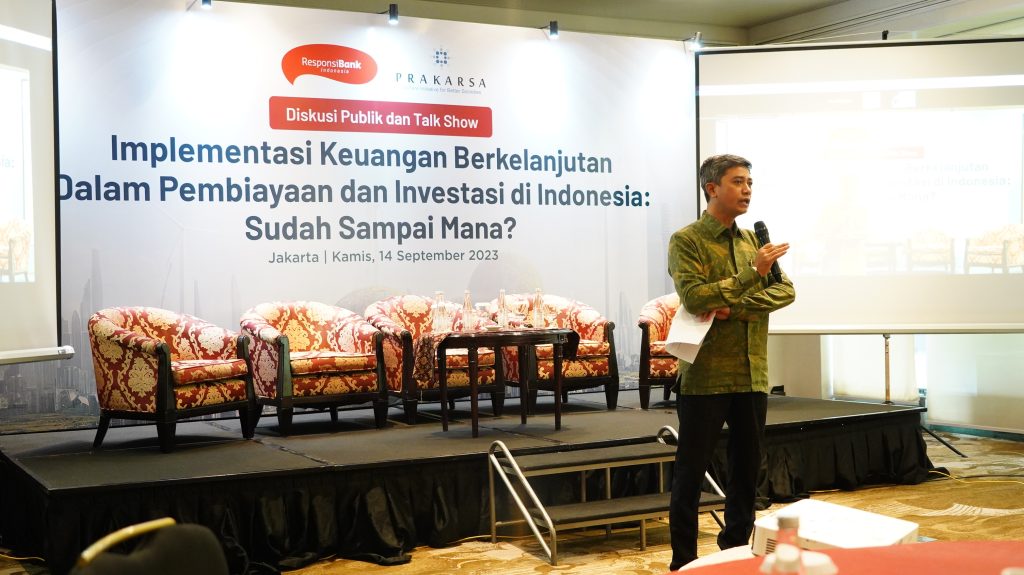
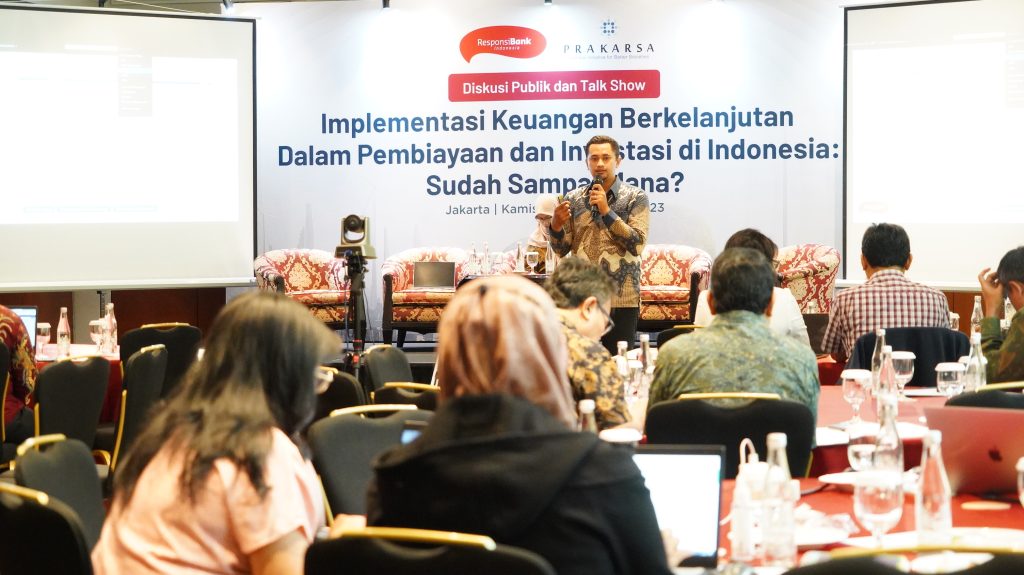
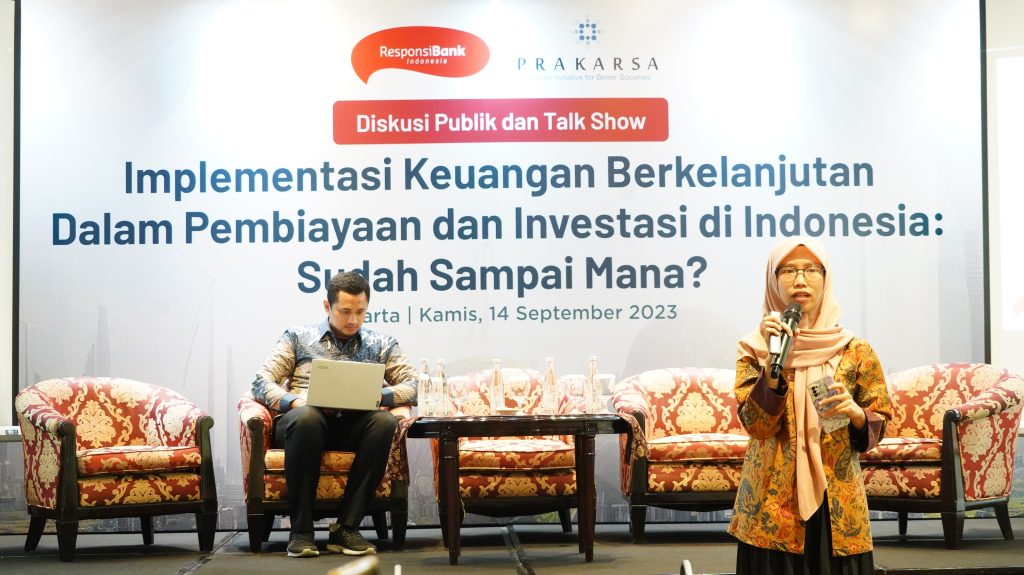
Policies for Climate Change Issues Are Still Low
Furthermore, Dwi Rahayu Ningrum, Sustainable Finance Researcher PRAKARSA In his presentation he explained that on the theme of climate change, the highest score was still in the fair range (4,0). Some banks even got a score of 0,0 on this theme, such as BNI, BCA and BJB.
"These three banks still do not have measurable targets for reducing Green House Gas (GHG) emissions, both for operational activities and financing. Even though several banks have started to move to support the Net Zero Emissions target, unfortunately there has been no commitment to stop portfolios in the coal sector. "For example, BRI, even though it has a list of exceptions for financing assets related to fossil fuels, has not found a written commitment/policy regarding this matter," explained Dwi.
Another theme that also received a low score was power generation, in first place was HSBC with a score of only 3,5, followed by DBS with a score of 2,9, Maybank with a score of 2,0, and BRI with a score of 2,0. Meanwhile, other national banks such as Mandiri and BNI only ranked 7th and 10th with scores of 0,8 and 0,5 respectively.
On the other hand, there was also a theme that received a high score, namely the financial inclusion theme obtained by BNI with a score of 7,7, followed by Bank Mandiri with a score of 6,5 and Bank Danamon with a score of 6,2. BNI is a bank that consistently develops this policy, because in 2020 BNI also ranked first in the financial inclusion theme with the same score.
Continuing this, Ricko Nurmansyah who is also a Sustainable Finance Researcher PRAKARSA said that banks in Indonesia need to increase their commitment to several themes that still receive low ratings, such as health, gender equality, mining, climate change, and gas and oil.
Measuring Commitment and Policies for Handling Climate Change is Not Easy
Responding to the results of this research, in the talk show session, the Director of the Trisakti Sustainability Center, Juniati Gunawan, said that our current challenge is that calculating climate change is not easy. “The conversion factors are different and the sources are different and it requires a lot of learning and a lot of greenwashing has emerged. "Several banks that conveyed Net Zero Emissions (NZE) have been reprimanded and are no longer allowed to convey the advertisement because the baseline has not been verified," explained Juniati.
Meanwhile, Yunus Husain, Chairman of PPATK 2002, believes that the enactment of Law No. 4 of 2023 concerning Development and Strengthening of the Financial Sector is a step forward for the development and strengthening of sustainable finance in Indonesia. “Trying to be addressed with carbon trading, sustainable financing, and then also the green taxonomy. "This is progress and there is already an OJK policy regarding this issue," said Yunus.
Yunus also believes that for financial service institutions to have a commitment to implementing sustainable finance, what is important to pay attention to is how to link sustainability issues, especially ESG, with the bank's health level and then supervision from the government is needed.
"OJK as an institution that has the authority to regulate and supervise the financial industry has indeed issued regulations, but the most important thing is firstly how to enforce these regulations both during passive supervision through expected reports, then secondly during inspections, in Active and passive monitoring ultimately boils down to assessing the level of health, there are issues of risk, governance, capital and profits. "Well, in my opinion, if it is related to the soundness level assessment, I think the bank will be afraid if it does not comply with the components assessed earlier," he said.
Clearer Policies for All are Needed
Mukhamad Misbakhun, Member of the DPR RI Commission According to him, this is important to pay attention to "because we need a clear roadmap for, for example, how to reduce greenhouse gas emissions. What is happening today is that the government does not have a clear roadmap, in fact all ministries and institutions have their own roadmaps," said Misbakhun.
On this occasion, Misbakhun also reminded the importance of consistency among policy makers. "Because the formulations in these regulations are very much scattered in our legal system which shows our bias, but please implement them well. When regulations are taken and when regulations are implemented, the spaces are separate, there are roles for the legislature, executive and civil society which must also be controllers, and this democratic space is a space for working together to exercise joint control. "We can use this mechanism to remind each other that this country belongs to us together and contains human beings who must think together. If you want to make a profit, that's fine, but in the right way," stressed Misbakhun.



